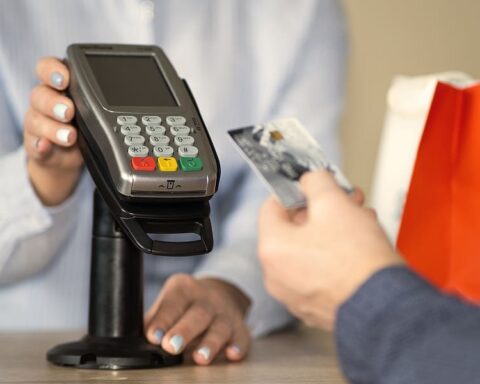When Bitcoin first came out, it only had a value of a few cents and was considered to be a “fake currency” by everyone in the market because of it’s digital nature. Fast forward to today, Bitcoin is one of the most valued commodities in the market right now and has a total market value of over a trillion dollars.
Those who had faith in Bitcoin right from its early stages invested early in it and are now bitcoin billionaires because of their sound decision. These billionaires have inspired legions of other investors around the world to invest in Bitcoin and if you too want to be a part of them, then you can visit this site to do so.
While investing in Bitcoin is relatively easy to understand, many people get confused over the nature of the blockchain. One especially confusing part that has befuddled many crypto investors is how that blockchain network verifies trades for legitimacy and accuracy. If you too are one of these investors that wishes to know how the accuracy of a bitcoin transaction is checked, then don’t worry because you are at the right place.
In this article, we will be listing several ways how bitcoin trades are checked for accuracy, why it is necessary, how much time it requires and how many times one should check them for accuracy. Read the article till the end so that you don’t miss out on crucial details.
Why is checking Bitcoin transactions for accuracy necessary?

If you are experienced in the world of cryptocurrency, you must be already familiar with the phenomenon of ‘double spending’. Double spending refers to the action of using the same Bitcoin for two different transactions by duplicating an original copy of a Bitcoin. While impossible to do with fiat currency, this is a very much viable possibility in the world of cryptocurrency where the currency only exists digitally.
Fortunately, this is impossible to do in Bitcoin thanks to the technology designed by Satoshi Nakamoto, Bitcoin’s creator, and efforts of the miners that keep the blockchain up and running everyday. Satoshi acknowledged this problem even before he created Bitcoin and ensured that each trade would pass an accuracy or legitimacy test done by miners that ensures that it is accurate and valid.
Without this technology, a lot of scams would occur using Bitcoin and it would be considered an unsafe cryptocurrency to use for payments – thereby rendering it useless in the market.
How exactly does a transaction get checked for accuracy?
Now that you know why checking Bitcoin transactions for accuracy is important, let us find out how exactly it gets checked for accuracy. The first and foremost thing you need to understand is that you can’t check the verification of your trades yourself, unless and until you are a crypto miner.
When you start a trade with another user, it generates a specific request that is reflected on the blockchain network. This request is inspected and then undertaken by a miner for a specific fee along with many other requests from other users. The more you pay the transaction fee, the higher a miner will put you on the priority list of checking the crypto for accuracy and validity.
These miners solve complex mathematical equations with their mining rigs until they arrive at an answer that checks whether the trade has occurred previously before in the blockchain. If it’s a new trade, the miner adds it to a block on the blockchain network and confirms that your transaction is indeed accurate and legal.
What’s more is that each subsequent block that is added to the blockchain network after you, serves as an accuracy and confirmation result for your specific transaction. For example, we know the genesis block (the first block in the blockchain network) exists and is fully valid because miners have added millions of blocks to the blockchain after it.
How many times should a transaction be checked?

While one confirmation is enough for checking the accuracy and legitimacy of a crypto transaction, many exchanges go the extra mile and put a compulsion of three or even six confirmation checks to ensure that a trade is accurate and valid. It honestly depends on how secure your exchange is and how much amount you are transferring through that exchange.
In case your trade value exceeds even that of the standard limit of $1 million, the confirmation checks required to process that transaction will at least be 8 or even 10 in number to make sure that the entire amount is being transferred properly. In many cases, an exchange simply won’t allow you to process or complete a trade until it has done their security checks.
That is actually good for you since the more accurate and secure your transaction is, the better it is for you.
What is the average time required for checking the accuracy of a Bitcoin transaction?
Smaller and menial trades that don’t hold a value of more than a million dollars don’t need as many confirmation and accuracy checks as smaller valued ones do. Thus, this also reduces the time needed for fully checking a Bitcoin trade and verifying its legitimacy.
A normal Bitcoin trade that doesn’t hold a large value takes about 12 minutes to do one single confirmation and accuracy check. However, since the golden standard for crypto exchanges is a minimum of three or six confirmation checks, depending on their security, your trades can take anywhere from half an hour to an hour to process.
How much transaction fees you pay for completing these confirmation checks also plays a huge role in how soon your trade is actually processed because miners deal with multiple requests and yours is just another one of them.
If you want to incentivize the miner to validate your trade on priority, all you need to do is increase the amount of the transaction fee that you need to pay. This gives the miner a reason to work on solving your transaction’s mathematical equations first over others, thus completing your trade in an extremely short amount of time.
Conclusion

There are several ways how bitcoin transactions are checked for accuracy and we hope this article was insightful for you in realizing how. If it was, please consider following our website for regular updates as it will help us out immensely.




